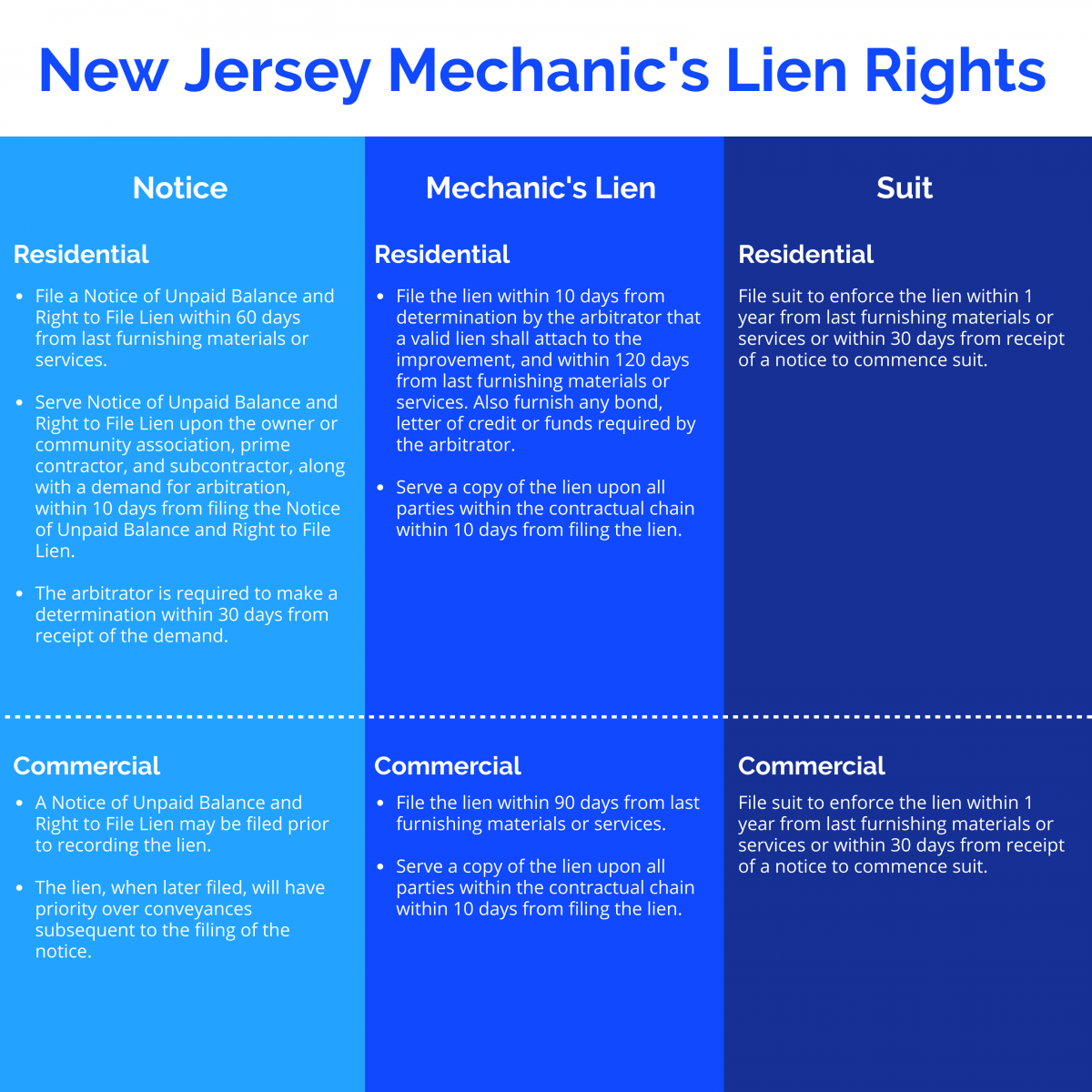Are You Authorized to Sign the New Jersey Mechanic’s Lien?
As if it’s not challenging enough to keep track of notice and lien deadlines and requirements for each state, you also need to be sure the person signing a mechanic’s lien is authorized to do so. Why? Because you don’t want your mechanic’s lien invalidated and discharged, and you certainly don’t want to be saddled with additional attorney fees, like the claimant at the center of today’s post.
New Jersey Changed Its Statute
In 2011, New Jersey amended its mechanic’s lien statute. One change under the 2011 revisions was to modify the signature requirements of the lien. Prior to 2011, the statute dictated the lien should be signed by a “duly authorized officer” of the claimant company. In 2011 the NJ 2A:44A-6 statute was amended to “the lien claim form…shall be signed, acknowledged and verified by oath of the claimant…” removing the “duly authorized officer” requirement.
This change was more than 10 years ago, why does it matter now? Because as recent as December 2018, a case was before a NJ Court of Appeals regarding a 2008 mechanic’s lien. You can read the appeals decision for Diamond Beach, LLC v. March Associates, Inc., NJ: Appellate Div. 2018, but here’s the gist –
In 2008, the lien claimant filed a lien signed by claimant’s “Accounting & Information Systems Manager” who was not a duly authorized officer of the company. The project owner contested the lien, arguing the lien was invalid because it was not executed by a duly authorized officer of the company. Not only did the court agree with the owner and discharge the lien, the court also awarded attorney fees to the owner. The claimant tried to argue the 2011 statute changes retroactively applied to its 2008 lien; as you’d imagine, the court disagreed with that argument.
“…the Legislature did not ‘express its intent that the [signatory change] apply retroactively, either expressly or implicitly,’ and there is no suggestion at all that the parties expected retroactive application.”
Ok. But That Was Then. What’s the Big Deal Now?
Well, there’s a tricky thing about NJ statute. Yes, “duly authorized officer” was removed from the text under NJ 2A:44A-6. However, under the current notary section of the lien form (NJ 2A:44A-8), the language implies the person signing the lien is an officer of the company:
On this ____ day of ______ 20__, before me, the subscriber, personally appeared (person signing on behalf of claimant(s)) who, I am satisfied is the Secretary (or other officer/manager/agent) of the Corporation (partnership or limited liability company) named herein and who by me duly sworn/affirmed, asserted authority to act on behalf of the Corporation (partnership or limited liability company) and who, by virtue of its Bylaws, or Resolution of its Board of Directors (or partnership or operating agreement) executed the within instrument on its behalf, and thereupon acknowledged that claimant signed, sealed and delivered same as claimant’s act and deed, for the purposes herein expressed.
Confusing? Contradictory? Contentious? Yes, yes, and yes! Although statute was updated to remove “duly authorized officer” the lien form itself was not modified to remove language that implies the signatory is an officer of the company.
Best Practice: Any time you are executing a mechanic’s lien, ensure it is signed by an individual authorized by your company to sign a legal document on the company’s behalf.
Just in Case You Wondered: New Jersey Mechanic’s Lien Rights
New Jersey is an unpaid balance lien state, which means the lien is only enforceable for the unpaid portion of the contract. Also, only those contracting with the owner, prime contractor, or a first-tier subcontractor have mechanic’s lien rights.
In New Jersey, there are different requirements depending on whether you furnish to a commercial project or residential project. Here’s a breakdown:

